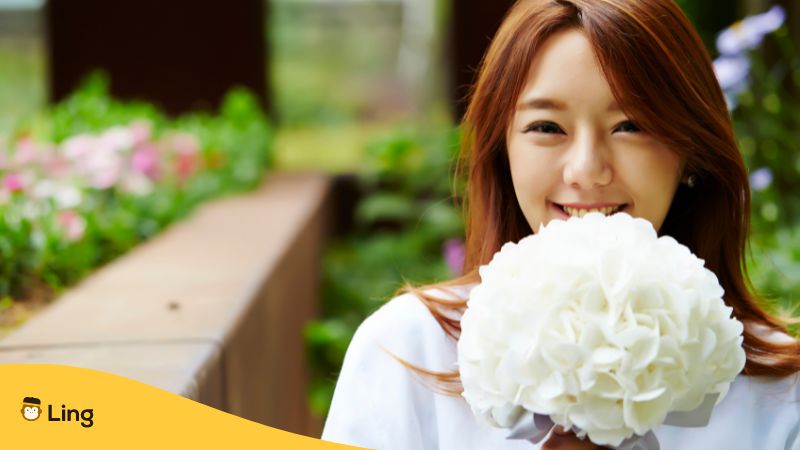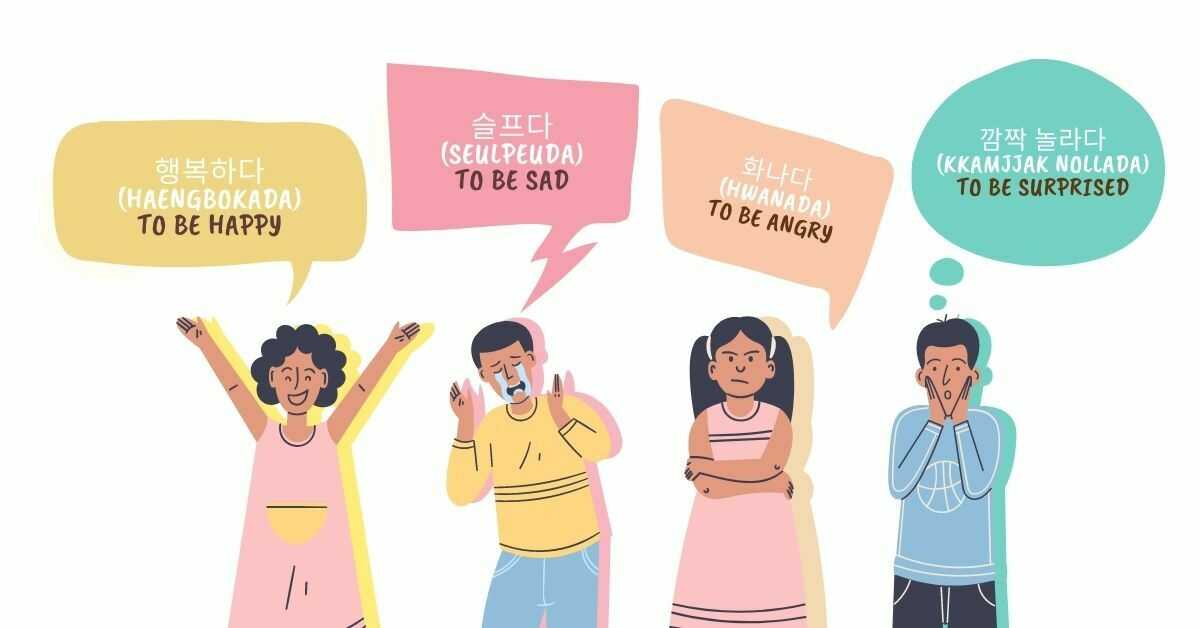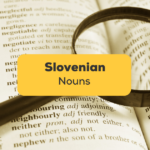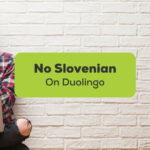Ya 야, Aigoo아이구, Jinjja? 진짜?. An avid K-drama fan wouldn’t need audio to hear how Koreans say these words to express their moods and emotions in Korean.
When it comes to expressing their moods and emotions, Koreans can surely climb their way up to the top of your list. Just by watching K-dramas. You’ll experience an emotional rollercoaster. You will feel happy, sad, angry, and even frightened. Even if you’re not living in Korea, you can see how Koreans express their moods and emotions in Korean language on point.
Nowadays, one of the most common problems of the youth is expressing their feelings even in their native language. How much more when you’re learning a new language? Of course, it is one of the hardest things. As a non-native speaker, it is better to know some common expressions and words least So, let’s learn some vocabulary about feelings and emotions in Korean language. If you want to learn more, you know Ling App is only a click away.
When Do We Use “Formal” Korean Word?
Before anything else, let’s first remember that Koreans have this thing called politeness level. This politeness level defines how they should talk to the other person. Koreans use the formal form when they are in formal situations like workplace and business meetings and gatherings. They also use this when they talk to people who are much older than them. This is also the perfect form that you should use when you are talking to strangers.
When Do We Use “Informal” Korean Word?
The informal form is used when talking to people of the same age or someone close to you, like friends and peers. In a Korean conversation, you have to consider that hierarchy to avoid being rude. You will only use the informal form for casual conversations.
However, even if the Korean speech can be formal or informal, it is still challenging to know whether the Korean words for moods and feelings are formal or informal. Just beware because it may sound like a poetic word that will sound very unnatural.
What Is The Korean Word For Emotions And Mood?
Now that you have learned how to speak with the locals properly let us go to our main point, which is the moods and feelings in Korean. We should first know how to say emotions or moods in the Korean language. Take a look at the words below:
감정 (Gamjeong)
The Korean word for emotion is 감정 (Gamjeong). Just like in other languages, emotions can be expressed verbally and non-verbally. If you are watching different K-drama series and interviews, you probably know what I mean.
기분 (Gibun)
Another common Korean word related to moods and emotion is 기분 (Gibun). This means “feeling or mood in English if a person is moody like Jang Man-wol in “Hotel Del Luna,” Koreans call it 변덕스러운 (byeondeokseureoun) or “moody” in English.
Now that you have learned these two important Korean words let’s learn the different moods and emotions in Korean.
Korean Words And Phrases Related To Mood And Emotions
Do you remember how much you have cried while watching the series “Hi, Bye Mama?”. How angry at you at Cho-Cheol-gang when he’s trying to kill Captain Ri and Yoon Se-ri in “Crash Landing on You”? Of course, who would forget how we all fall in love with Jung Hwan’s effort for Deok -sun in “Reply 1988”? Such an emotional rollercoaster, isn’t it? These are just a few of the many proofs that Koreans are really good at expressing emotions.
So, let’s learn some different moods and emotions in Korean language. If you have difficulty learning the Korean pronunciation of these phrases, you might want to check Ling App for more engaging learning.
1. 행복하다 (Haengbokada)
English Translation: to be happy
How To Express It: 행복해요. (Haengbokhaeyo.) – (I’m) happy.
“Well, she said it felt like a dream. A dream that she’ll remember forever. It made her so happy. You want to take that away from her?” – Han Ji Pyeong, Start-up
The line above is from the K-drama “Start-up.” A quick back story, the female lead character, Seo Dal-mi, experiences many hardships in life. Her mother and sister left, and her Dad died. But, while she’s going through these hardships, there’s a friend who makes her very happy and always puts her in a good mood.
The phrase 행복하다 (Haengbokada) is “to be happy” when we translate it into English. But remember, 행복하다 (Haengbokada) is a very uncommon phrase to use to state that you’re happy. This sounds poetic word. Although it has the same meaning as “happy,” it has a big difference. Native Koreans avoid using 행복하다. That is why it is still safe to say 기분이 좋아요 (Gibuni joayo) (I feel good) or 행복해요. (Haengbokhaeyo). You can also hear them say “아싸! (Ah-ssa!), which means “Yes!” or “Oh Yeah!”.
Being happy is one of our ultimate desires in life. Happiness doesn’t always have to be deep. It can be from a funny thing (웃기는 | uggineun) you heard or a joke (농담 | nongdam) that someone cracked up for you. But of course, you guys know that it doesn’t always go that way. We experience sadness and heartbreaks, but like what they say, “There’s always a rainbow after the rain.”

2. 사랑에 빠지다 (Sarang-e Ppajida)
English Translation: to be in love
How To Express It?: 사랑에 빠졌어요. (Sarang-e bbajyeosseoyo.) – (I’m in love.)
“If you catch a falling maple leaf, you’ll fall in love with the person you’re walking with.” – Eun Tak, Goblin.
Are you one of those people who wished to be under a maple tree (단풍나무 | danpungnamu) with someone you love after watching this scene from Goblin? Who would’ve thought that a Goblin would fall in love with a simple human being? That’s what we call true and endless love. In the Korean language, they use the phrase 사랑에 빠지다 (Sarang-e ppajida) to say “to be in love or falling in love” Pretty sure you’ve already heard it a couple of times when you’re watching K-dramas.
One of the greatest feelings in the world is being in love. We all deserve to love and to be loved in every possible way. Knowing that someone is out there who will make you feel loved and treasured makes you feel blessed. So, there’s no way that we’re going to talk about moods and emotions in Korean without learning the Korean word for “to be in love or falling in love” 사랑에 빠지다 (Sarang-e ppajida).
3. 깜짝 놀라다 (Kkamjjak Nollada)
English Translation: to be surprised
How To Express It?: 놀라워요. (Nollaweoyo.) – (I’m) surprised.
“I’ll surprise you and turn this cake into a birthday cake.” – Dong Ryong, Reply 1988
Calling all team Jung Hwan out there. Indeed, this scene is one of the reasons why you are shipping Deok-Sun and Jung Hwan. The line above is one of the unforgettable scenes in Reply 1988 because despite being a boy, Jung Hwan managed to pull off a big surprise wedding/birthday celebration for her mom, who feels down. A very successful surprise indeed.
In Koreans, to express the feeling of being surprised, they say 깜짝 놀라다 (Kkamjjak Nollada). But, for sudden moments, you can usually hear “Jinjja? | 진짜?” (really) and “어머 / 어머나| Omo / Omona” (Oh no! or Oh my gosh!).
When we were young, we loved surprises. But some people still love surprises even if they are older. But, surprises are not always positive. Sometimes, there are negative things that will surprise you. Life is really full of surprises so learn to be flexible (유연하다 | yuyeonhada) whatever life throws at us.
4. 슬프다 (Seulpeuda)
English Translation: to be sad
How To Express It?: 슬퍼요. (Seulpeoyo.) – (I’m) sad.
“I was wrong. When I die, there is someone who cries for me. The fact that you are that person makes me both sad and happy.” – Seung Joon, Crash Landing on You.
Let’s talk about this scene that made every “Crash Landing on You” fan depressed. This is definitely one of the saddest Kdrama scenes that will make you cry. Imagine going through a lot of struggles in life alone. Then, you finally meet the love of your life, but fate says “No” by letting you leave this world. How painful is that?
Being sad is one of the most common feelings for us. That is why we can’t take this off the list when we learn moods and emotions in Korean. The phrase 슬프다 describes an extremely sad feeling or mood. Saying “슬퍼요. (Seulpeoyo.)” or “I’m sad.” is the most common expression Koreans use to express an extremely sad mood. You can also hear them say “아이구 (Aigoo) when comforting someone, but this expression can be used in different ways. When they are sad, they usually drink alcohol in the nearest pub or just cry in silence at night.
5. 질투하다 (Jiltuhada)
English Translation: to be jealous
How To Express It?: 질투나요. (Jiltunayo.) – (I’m) jealous.
“Chan Seong has a girlfriend? Who is she? Is she pretty? – Jang Man-wol, Hotel Del Luna
Who would’ve thought that an extremely beautiful and rich hotel owner could be jealous of an ordinary woman? This line is from the scene where Chan Seong’s ex-girlfriend arrived. Jang Man-wol, who lived for ages and always wore jaw-dropping OOTD, got jealous of a woman who had nothing compared to her. This scene is both too funny and sweet at the same time.
Jealousy is natural when you love someone. Of course, there’s that fear that the other person will make them feel happier than you but always remember that trust is important in a relationship. Too much jealousy can lead to many negative things that can ruin relationships.

6. 화나다 (Hwanada)
English Translation: to be angry
How To Express It?: 화가나요. (Hwaganayo.) – (I’m) angry.
“These men. First Lieutenant Yoon, bring your gun.” – Kang Mo-Yeon, Descendants of the Sun
This scene proves that even soldiers from the Alpha team will raise their white flags when it comes to their angry girlfriends. Did you notice how fast Yoo Shi-Jin and Seo Dae-Young run upon hearing about the package from a girl they have met? Yes, they probably know what’s waiting for them if they don’t rush like that.
If someone puts you in a bad mood or someone does something horrible to you, you can say “화가나요. (Hwaganayo.)”. Now that we are learning the moods and emotions in Korean, we should not let this slide because saying that you are angry will let other people know how to approach you. This might lead to more serious problems. Of course, we don’t want that.
7. 짜증나다 (Jjajeungnada)
English Translation: to be annoyed/frustrated
How To Express It? 나 짜증나 na jjajeungna – I’m annoyed!
“Have you gone mad? Why would you send that back?” – Jang Man-wol, Hotel Del Luna.
When it comes to mood swings, we have our queen for that in K-dramas. It’s Jang Man-wol. This scene is funny because she was annoyed by Chan Seong when he wanted to sell all her luxuries to save money for their hotel. Notice how many times she shouted “Ya 야” or hey in English.
The phrase “짜증나다 (Jjajeungnada)” is a unique Korean word that English doesn’t have. It is used to express the feeling of being annoyed and irritated by someone. The word/ expression “Ya 야” is the most common Korean word or expression that you might hear when they are annoyed. They also used Aish/아이씨, which means “darn it” or “oh man” in English.
8. 긴장하다 (Ginjanghada)
English Translation: to be nervous
How To Express It? 긴장이 되요. Ginjang-i dwoeyo. – (I’m) nervous.
“You were nervous because I’m your boss?” – Cha Soo Hyun
“No, because you’re pretty.” – Kim Jin Hyuk, Encounter
Who will forget this stranger-turned-to-colleagues then lovers relationship between Soo-Hyun and Jin Hyuk? This line is one of the most memorable and sweetest lines that Jin Hyuk said to Soo-Hyun. This Kdrama proves that in love. There’s no such thing as age and social status.
Being nervous, when translated in Korean, is 긴장하다 (Ginjanghada). To express that you are nervous, you can say “긴장이 되요. Ginjang-i dwoeyo.”. You may also hear them say “어떡해? | Eo-tteok-hae?” (What do I/we do?). But, sometimes Koreans are not that verbal when they become nervous. They usually take a deep breath, wipe their sweat, rub their hands together, or walk back and forth.
9. 심심하다 (Simsimhada)
English Translation: to be bored
How To Express It? 지루해요. (Jiruhaeyo.) – (I’m) bored.
“Your boring life might turn into an exciting one.” – Park Saeroyi, Itaewon Class.
This award-winning K-drama proves that you are the master of your own life. If you make an effort and strive to be better, your life will really be exciting.
Although the line above is too deep, you can explore different activities in South Korea to avoid being bored. You can try traveling (여행 | yeohaeng), eating (먹는 것 meokneun geot )at local restaurants, skiing (스키 seuki), and more.
10. 무서워하다 (Museowohada)
English Translation: to be scared/frightened
무서워요. (Museo-weoyo.) – (I’m) frightened.
“You would not have drawn me the tails if I hadn’t scared you.” -Mi Ho, My Girlfriend is a Gumiho.
If the two soldiers from “Descendants of the Sun” are afraid of their girlfriends getting mad, how much more when you’re girlfriend is a gumiho (구미호) or a nine-tailed fox? This love story started scary for the male lead role but ended up really sweet and touching.
The last phrase related to moods and emotions in Korean that we will learn is 무서워하다 (Museowohada). This is the Korean word to say “to be scared/frightened.” Being scared can either be from horror movies, heights, losing something or someone, and unsure things in life. But, you may hear Koreans say ” 화이팅 (Hwaiting)” to cheer you up.
Other Korean Words And Phrases Related To Moods And Emotion
Now that we have learned some basic moods and emotions in Korean let’s learn more. Below is a list of Korean words and phrases that expresses positive emotions and negative emotions.
Positive Moods And Emotions In Korean
| Hangul | Romanization | English Translation |
| 살아있음을 느껴요 | Sara-isseumeul neukkyeoyo | feel alive |
| 기대 되요 | Gidae dwoeyo | excited |
| 자랑스러워요 | Jarangseureowoeyo | proud |
| 활기차요 | Hwalgichayo | energetic |
| 활발해요 | Hwalbalhaeyo | lively |
| 만족해요. | Manjokhaeyo | content |
| 균형 잡힌 느낌이에요 | Gyunhyeong jabhin neukkimieyo | feel balanced |
| 의욕 있다 | Uiyok itda | motivated |
Negative Emotions Moods And Emotions In Korean
| Hangul | Romanization | English Translation |
| 행복해요 | Pigonhaeyo | tired |
| 지쳤어요 | Jichyeosseoyo | exhausted |
| 걱정되요 | Gukjungdweyo | worried |
| 실망했어요 | Silmanghetseoyo | disappointed |
| 바빠요 | bappayo | busy |
| 창피해요 | changpihaeyo | embarrassed |
| 불만스러워요 | bulmanseureoweoyo | unsatisfied |
| 급해요 | Guphaeyo | in a hurry |
Neutral Moods And Emotions In Korean
| Hangul | Romanization | English Translation |
| 배고프다 | baegopeuda | hungry |
| 게으르다 | geeureda | lazy |
| 졸리다 | jollida | sleepy |
Wanna Have Fun While Learning Korean?
Indeed, you have fun learning about different moods and emotions in Korean, but do you want to level up your game? You’ll be thrilled to hear that learning Korean can be meaningful and fun at the same time through Ling App. You will not just be able to define Korean words easily; you can also have fun through games, audio recordings, and images that come with the lessons.

Have fun today while learning Korean!


































































